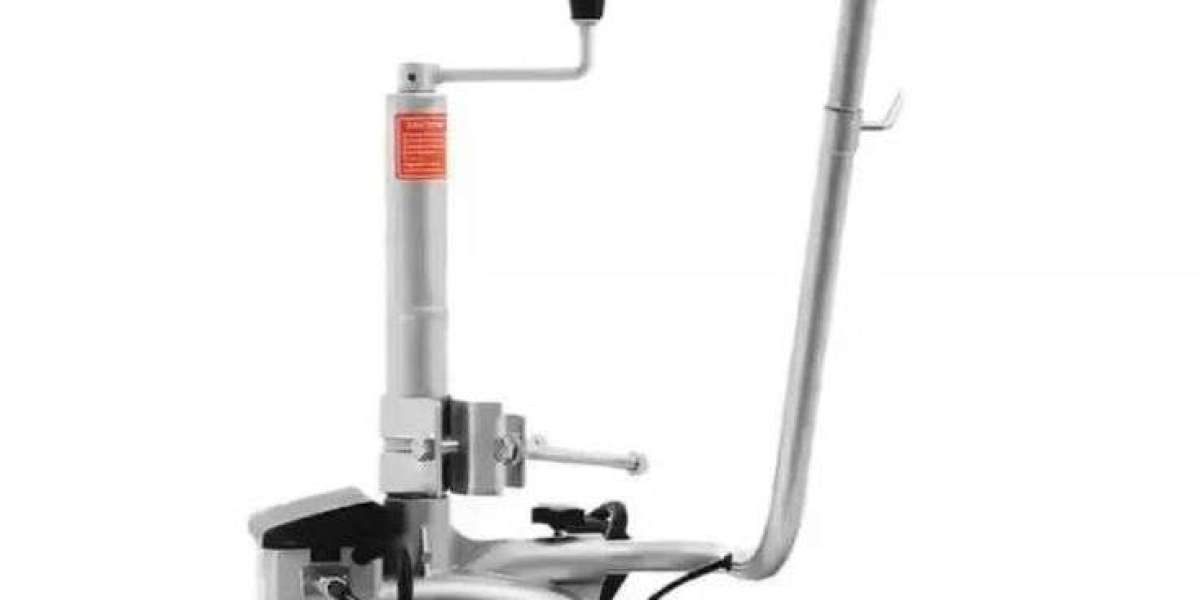An electric trailer mover is a motorized device designed to move trailers with minimal human effort. These compact, powerful machines attach to your trailer's coupling and use electric motors to push or pull your load exactly where you need it. They've become increasingly popular among caravan enthusiasts, boat owners, and anyone who regularly needs to position heavy trailers in tight spaces.
The growing popularity of these devices stems from their ability to eliminate the physical strain and safety risks associated with manual trailer movement. Whether you're navigating a crowded marina, positioning your RV at a campsite, or storing your boat trailer in a narrow garage, electric movers provide precision control that manual methods simply can't match. For extremely challenging situations involving steep inclines or particularly heavy loads, tools like a camper trailer winch can complement these movers for maximum versatility.
Ease of Use and Control
The primary advantage of modern electric trailer movers lies in their intuitive control systems. Quality units feature wireless remote controls that allow operators to maintain a safe distance while precisely controlling trailer movement. This remote functionality eliminates the need to be positioned dangerously close to moving equipment or in blind spots where you can't see potential obstacles.
A superior trailer mover electric should offer variable speed control rather than simple start-stop operation. This feature allows for smooth, precise movements when navigating tight spaces or approaching obstacles. The best units provide bidirectional control with clear directional indicators, making it easy to remember which button moves your trailer forward, backward, left, or right.
The ergonomic design of the remote control matters more than most people realize. After using your mover for extended periods, comfortable button placement and intuitive layout become increasingly important. Look for remotes with good range—typically 50-100 feet—ensuring you can position yourself optimally for the best view of your trailer's path.
Power and Performance
Battery efficiency and motor strength form the foundation of any reliable electric trailer mover. Modern lithium-ion batteries provide superior performance compared to older lead-acid systems, offering longer operating times and faster charging cycles. Quality units should provide at least 45-60 minutes of continuous operation on a single charge, sufficient for most positioning tasks.
Motor strength becomes crucial when dealing with various terrains. Your electric mover should handle gravel driveways, slight inclines, grass surfaces, and concrete with consistent power delivery. Unlike manual pushing or pulling methods that become exponentially more difficult on challenging surfaces, a well-designed electric mover should maintain steady performance regardless of terrain variations.
When compared to manual methods or specialized equipment like camper trailer winches, electric movers offer the perfect balance of power, convenience, and versatility for most trailer positioning needs. They provide consistent performance without the physical demands of manual operation or the complexity of winch systems.
Weight Capacity
Matching your electric trailer mover's capacity to your specific load is critical for safe, reliable operation. Most quality units handle loads ranging from 1,500 to 6,000 pounds, but choosing the right capacity requires careful consideration of your fully loaded trailer weight, not just the empty weight.
Consider that your caravan or boat trailer's weight increases significantly when loaded with supplies, equipment, and personal belongings. Water tanks, batteries, and camping gear can add substantial weight that affects mover performance. Choose a unit with capacity well above your maximum loaded weight to ensure reliable operation and extended equipment life.
The weight distribution of your trailer also affects mover performance. Tongue-heavy or tail-heavy configurations can impact how much load the mover actually experiences during operation, making proper capacity selection even more important.
Durability and Build Quality
Electric trailer movers operate in challenging outdoor environments, facing exposure to moisture, dust, temperature extremes, and rough handling. Robust construction using heavy-duty materials ensures your investment will provide years of reliable service.
Look for units with weather-resistant coatings, sealed motor housings, and protected electrical connections. Quality manufacturers often provide IP ratings indicating the level of environmental protection. Strong steel frames resist damage from impacts and rough handling while maintaining structural integrity under load.
Safety features should include overload protection to prevent motor damage, emergency stop functionality, and stable wheel designs that maintain traction on various surfaces. Some advanced units include tilt sensors that automatically stop operation if the mover becomes unstable.
Portability and Design
Practical design features significantly impact the real-world usability of your electric trailer mover. Compact, foldable designs reduce storage space requirements, while quick-release mounting systems allow rapid attachment and removal.
Weight distribution affects both portability and operational stability. The best designs balance substantial construction with reasonable portability, ensuring you can lift and position the mover safely. Adjustable handles and ergonomic controls reduce fatigue during setup and operation.
User-friendly design elements like clear labeling, intuitive controls, and logical component placement minimize the learning curve and reduce operating errors.
Extra Features That Make a Difference
Advanced features can significantly enhance the functionality and convenience of your electric trailer mover. Smart braking systems provide smooth stops and prevent trailer rollback on inclines. Extended remote range allows optimal positioning for better visibility during maneuvering.
Battery indicators help prevent unexpected power loss during critical operations, while quick-charge capabilities minimize downtime between uses. Some premium units offer smartphone app integration, providing additional control options and operational data.
LED lighting on the unit improves visibility during evening or early morning operations, while built-in storage compartments keep accessories organized and readily available.
When to Consider a Camper Trailer Winch Instead
While electric movers excel at general positioning tasks, certain situations may require the specialized capabilities of a camper trailer winch. Extremely steep inclines, soft terrain where wheels lose traction, or situations requiring precise pulling force may benefit from winch systems.
Many users find that combining both tools provides maximum versatility—using the electric mover for general positioning and the winch for challenging terrain or recovery situations.
Conclusion
Selecting the right electric trailer mover requires careful consideration of power, capacity, build quality, and practical features that match your specific needs. The most important factors include adequate weight capacity, reliable battery performance, intuitive controls, and robust construction that withstands outdoor conditions.
When choosing a trailer mover electric, prioritize safety features, ease of use, and proven reliability over the lowest price. A quality electric trailer mover represents a valuable investment in convenience and safety that will serve you well for many years of trailer positioning tasks.
Read More - 10 Benefits of Using An Electric Trailer Mover



